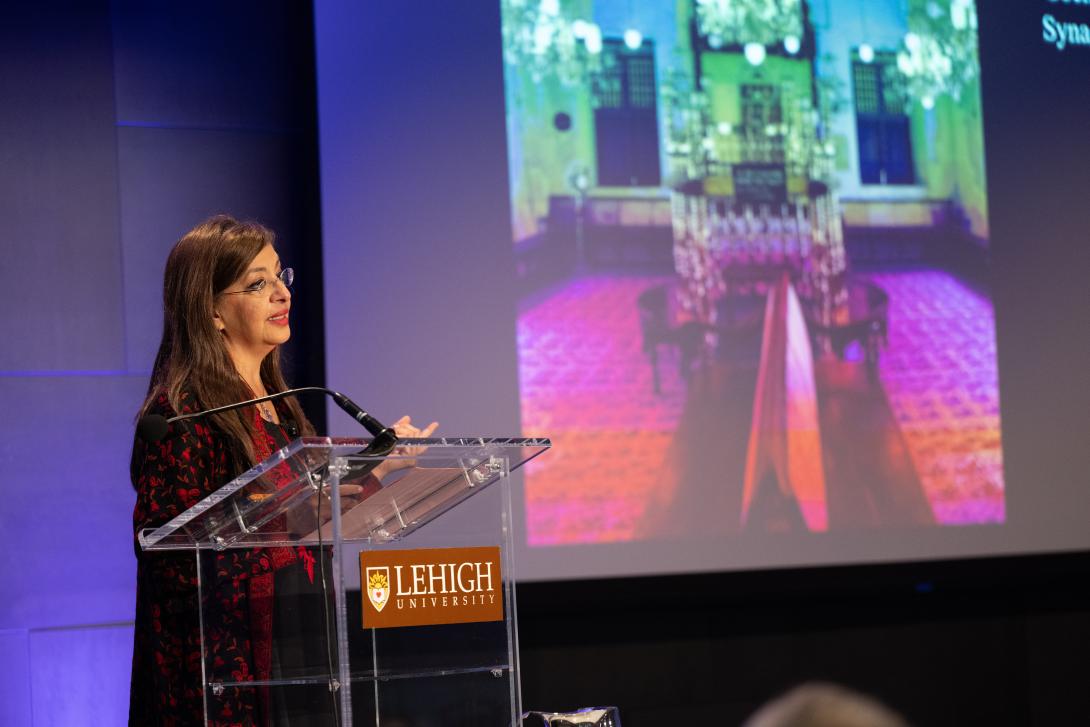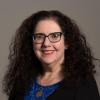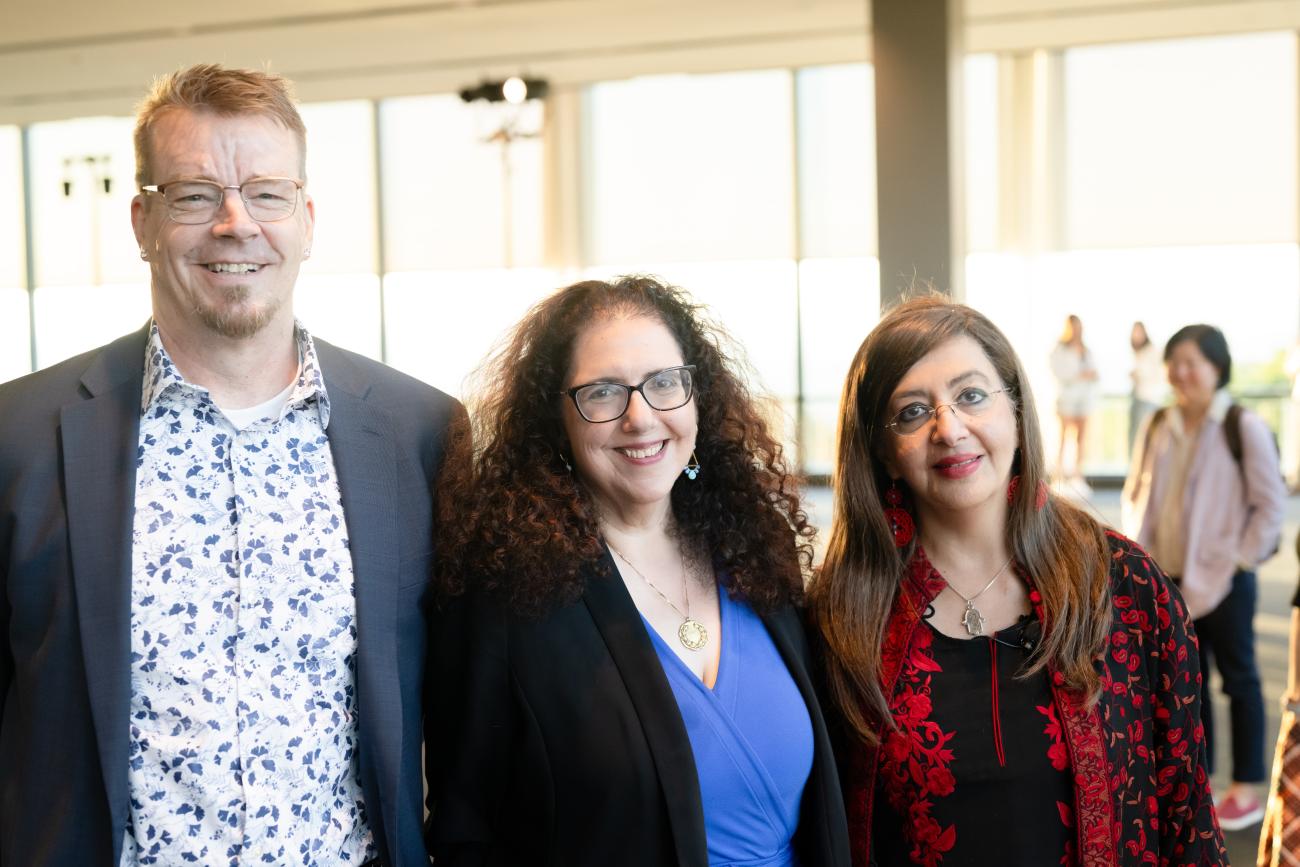Celebrating Four Decades of Scholarship: The Berman Center at 40
How a Vision for Jewish Studies Transformed a Community and Inspired Generations
In 1984, Lehigh Valley philanthropists Philip and Muriel Berman wanted to bring a center for Jewish studies to the region they called home. They envisioned a place in which scholarly research and discussion would take place, and where learning and understanding could flourish. They knew academic centers like this existed in big cities, but they wanted something closer. In 1984, the Bermans made a financial contribution to Lehigh University, establishing what was then called the Lehigh Valley Jewish Studies Center. In 1989, the center was renamed the Philip and Muriel Berman Center for Jewish Studies.
Forty years later, the center continues to flourish and provide an important resource for Jewish studies at Lehigh and beyond. It’s the hub of Lehigh’s Jewish Studies minor and draws internationally renowned speakers and leaders in the field. The program is growing and now includes an additional teaching position whose effort is split between Lafayette College and Lehigh. Past invited speakers include authors Chaim Potok, Michael Chabon, and Michael Twitty. The center hosts major interdisciplinary conferences at Lehigh, and for nearly a decade it collaborated with Oxford University and Bar-Ilan University to co-sponsor the Oxford Summer Institute in Modern and Contemporary Judaism, which assembled an international interdisciplinary group of scholars to address themes and questions in modern Jewish studies.
“In a nutshell, we are a research center and undergraduate minor. Our role is educational. What’s so important is we’re an academic unit rather than an advocacy group,” says Jodi Eichler-Levine, director of the Berman Center and Berman professor of Jewish civilization at Lehigh. “Our professors are all really trying to bring the expertise of their field to the audience’s questions. They won’t all say the same thing. I'm most proud of the collective wisdom of our faculty, students, and staff. That will endure whenever our students engage thoughtfully with the world around them. Our faculty's research endures in hundreds of articles, books, and conference papers delivered all over the world.
Programming for the Center’s 40th anniversary focuses on both the performing and visual arts. “It relates to our mission in so many ways because it ties to the interdisciplinary vision of our founders. The Bermans and their daughter Nancy were quite dedicated to the arts,” Eichler-Levine says, adding there will be an arts event of some kind nearly every month through the academic year.
The events kicked off in September with Mumbai-born artist Siona Benjamin, whose work reflects her background of growing up Jewish in a Hindu and Muslim India. In October, an outdoor walking tour of the sculpture garden taught visitors about the impressive works of art that dot Lehigh’s campus and the artists who created them. In November, the Center hosted a tribute to Chava Weissler, professor emerita of religion, culture and society at Lehigh, a leading scholar whose book Voices of the Matriarchs: Listening to the Prayers of Early Modern Jewish Women is one of the most important works in Jewish literature. This spring, Dr. Yossi Chajes, University of Haifa, will present “Visualizing Jewish Mysticism: Pop-Up Exhibit and Talk”; in April, the Berman Center will co-sponsor a performance by the Pharaoh’s Daughter Band with Lehigh’s Zoellner Arts Center.

Looking back over the last 40 years and particularly during her tenure as director, several moments stand out for Eichler-Levine. “Our visit from National Jewish book award winner Michael Twitty, author of Koshersoul, stands out. He’s a profound presence. Two other thrills were hosting authors Dara Horn and Joy Ladin, both groundbreaking Jewish women whose work has really influenced twenty-first century conversations,” she says.
In some ways, it could be said Eichler-Levine was destined to lead the Berman Center. Founding director Larry Silberstein held conferences regularly with scholars from all over the world coming to Lehigh. The proceedings on many topics—archaeology, politics, history—were all published. “I had one volume, The Other in Jewish Thought and History, on my shelf for decades and it really influenced me. Now I direct the Berman Center, which I did not predict when I picked that book up in graduate school,” she says.
The interdisciplinary aspect of the center at the heart of its mission remains critical to its current and future programs. History, too, is essential to understanding current events. “In order for students and the general public to understand anything going on today, they have to understand history and academic nuances,” Eichler-Levine says. “That’s the beauty of academic study—it makes room for a wide variety of voices.” In her own classroom for Modern Jewish History, students read primary documents from academic scholars “to make room for different voices,” she says. “Jewish studies does not exist in a vacuum. One of the biggest goals of our current faculty members is to engage in greater conversation with scholars adjacent to and outside Jewish studies. Jewish studies is inherently interdisciplinary—more and more, calling it ‘Jewish studies and…’ will be vital.”
"We’re situated in the beautiful Lehigh Valley, which is within a day’s drive or 2-hour flight of some of the top Jewish scholars in the world. I see the Center as a place that can continue to innovate and make connections in the field of Jewish studies for other people.”

Without question, The Berman Center has played an important role in the field of Jewish studies in the region. “The Berman Center was the first major Jewish studies center founded in the Lehigh Valley, and remains the largest,” she says. “In its early days, many professors actually taught courses across different schools. It was the catalyst for a thriving Jewish studies scene that is now a part of many colleges and universities here.”
An oral history of the Berman Center is being commissioned to preserve its history “and really get down the memories of everyone who has been part of the center or attended events. We’re hearing from people around the world,” Eichler-Levine says. Anyone interested in contributing a memory can contact Eichler-Levine for more information.
Looking ahead at the Center’s next 40 years and beyond, Eichler-Levine expects to see more Jewish studies minors. “We’ve had a dramatic increase in minors as students of all backgrounds realize interdisciplinary learning of all cultures is central for making the world go ‘round. I also foresee more great books coming out in the near future. Two of our faculty members have books coming out this year. I foresee more conversations with world-acclaimed scholars.” Lehigh’s geographic location is an asset for the program, as well. “We’re situated in the beautiful Lehigh Valley, which is within a day’s drive or 2-hour flight of some of the top Jewish scholars in the world. I see the Center as a place that can continue to innovate and make connections in the field of Jewish studies for other people.”

